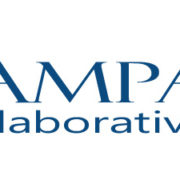Florida Encourages Out-of-Court Dispute Resolution
The following is part of an appellate brief that I wrote which outlines how the Florida legislature, the Florida Supreme Court, and the Thirteenth Judicial Circuit in and for Tampa encourages the settlement of disputes, especially in family law matters:

Florida strongly encourages out-of court settlement of disputes. See Fla. Stat. § 61.001(2)(b)-(c) (the purposes of Chapter 61, among other things, are “(b) To promote the amicable settlement of disputes that arise between parties to a marriage; and (c) To mitigate the potential harm to the spouses and their children caused by the process of legal dissolution of marriage.”); In re Report of the Family Law Steering Committee, 794 So. 2d 518, 522-523 (Fla. 2001); see, also, Robbie v. City of Miami, 469 So. 2d 1384, 1385 (Fla. 1985) (“[s]ettlements are highly favored and will be enforced whenever possible.”).
In re Report finds, in part, the following:
The Florida Supreme Court should adopt the following guiding principles as a foundation for defining and implementing a model family court:
***
3. All persons, whether children or adults, should be treated with objectivity, sensitivity, dignity, and respect.
***
5. Therapeutic justice should be a key part of the family court process. Therapeutic justice is a process that attempts to address the family’s interrelated legal and nonlegal problems to produce a result that improves the family’s functioning. The process should empower families through skills development, assist them to resolve their own disputes…and offer a variety of dispute resolution forums where the family can resolve problems without additional emotional trauma.
6. Whenever possible, parties and their attorneys should be empowered to select processes for addressing issues in their cases that are compatible with the family’s needs, financial circumstances, and legal requirements.
***
10. The court’s role in family restructuring is to identify services and craft solutions that are appropriate for long-term stability and that minimize the need for subsequent court action.
***
[The Florida Supreme Court also recognizes the need for] a system that provided nonadversarial alternatives and flexibility of alternatives; a system that preserved rather than destroyed family relationships; a system that empowered parties to make their own decisions; a system that empowered parties to make their own decisions.
The interdisciplinary collaborative family law process is a private form of dispute resolution where parties retain settlement-only counsel and utilize the services of neutral financial and/or mental health professionals. The Thirteenth Judicial Circuit of Florida has declared the collaborative practice model as consistent with the recommendations of the Report. See Admin. Or. S-2012-041 (Fla. 13th Cir. 2012)(available at http://www.fljud13.org/Portals/0/AO/DOCS/2012-041-S.pdf); see also http://collaborativepractice.com/ (the International Academy of Collaborative Professionals).
—
If you have questions about the collaborative family law process or other out-of-court methods of dispute resolution, schedule a consultation with Family Diplomacy at (813) 443-0615 or by filling out our contact form.
Adam B. Cordover now practices exclusively in out-of-court dispute resolution. He is managing attorney of Family Diplomacy: A Collaborative Law Firm, and president of Next Generation Divorce, one of the nation’s largest interdisciplinary collaborative practice groups.






Leave a Reply
Want to join the discussion?Feel free to contribute!